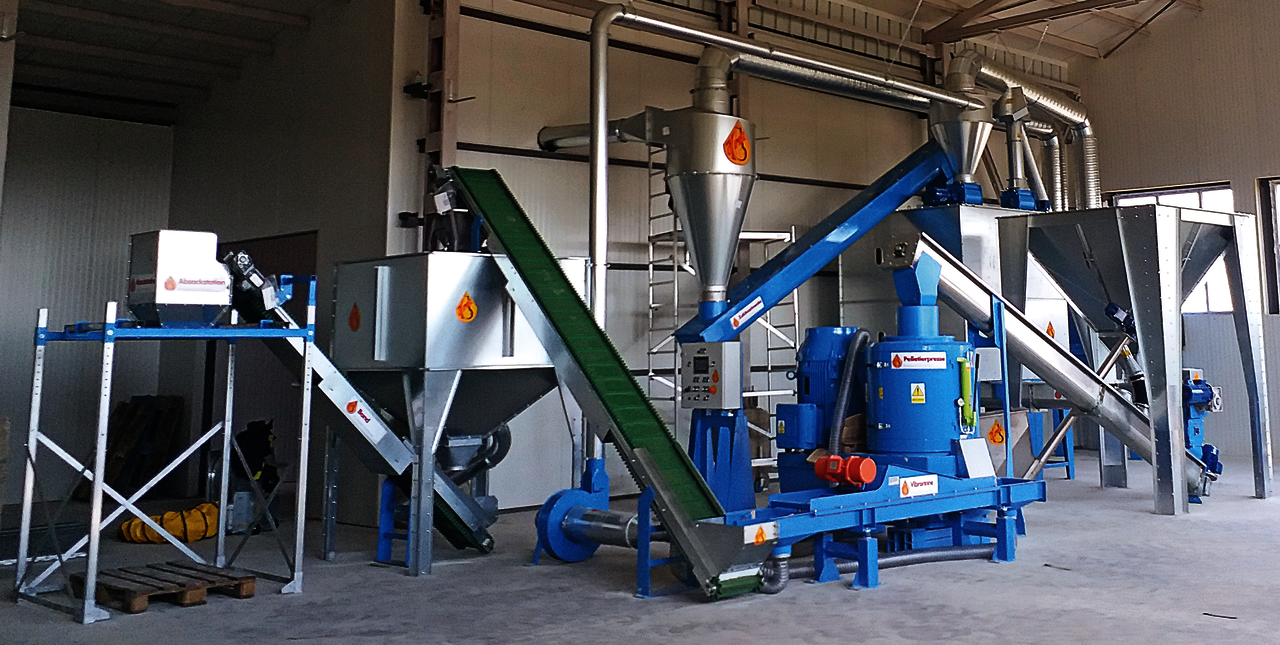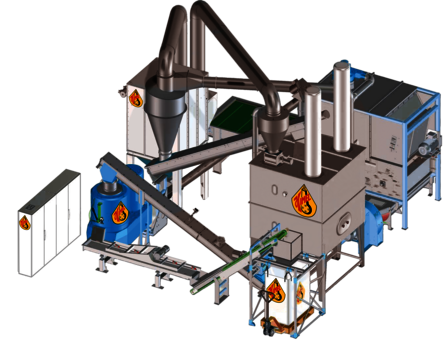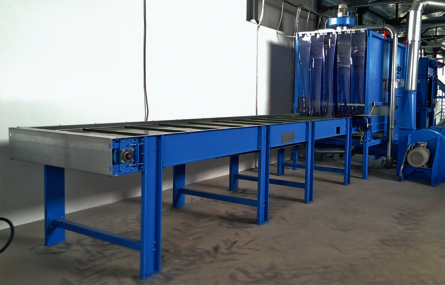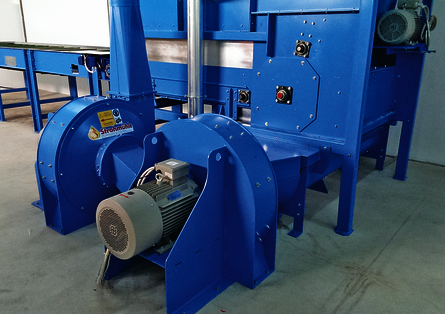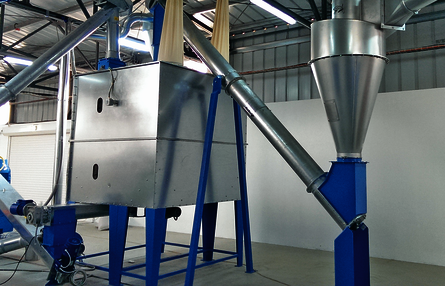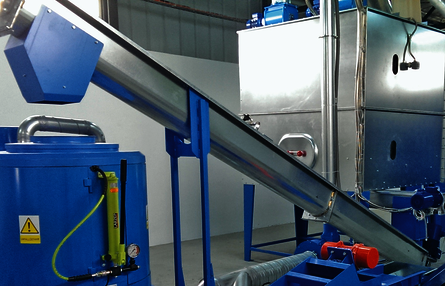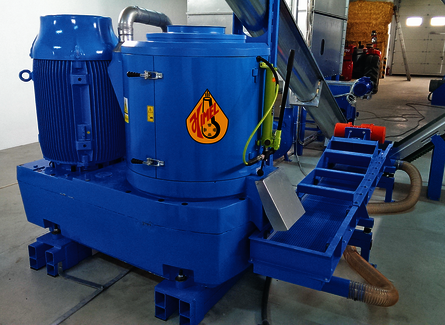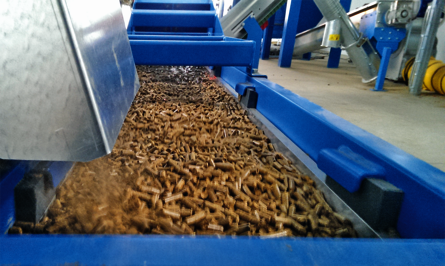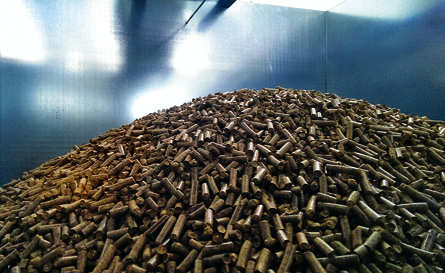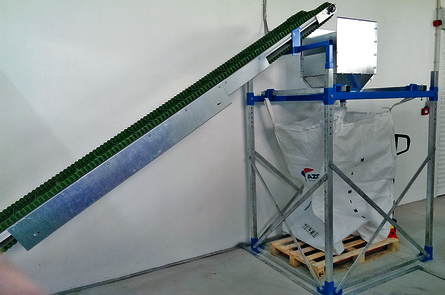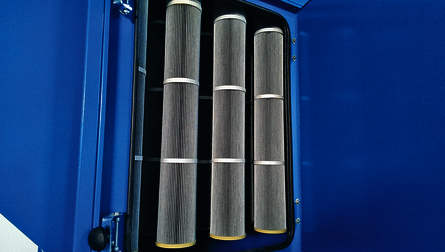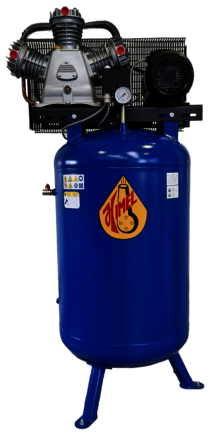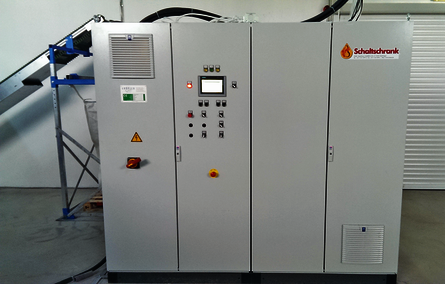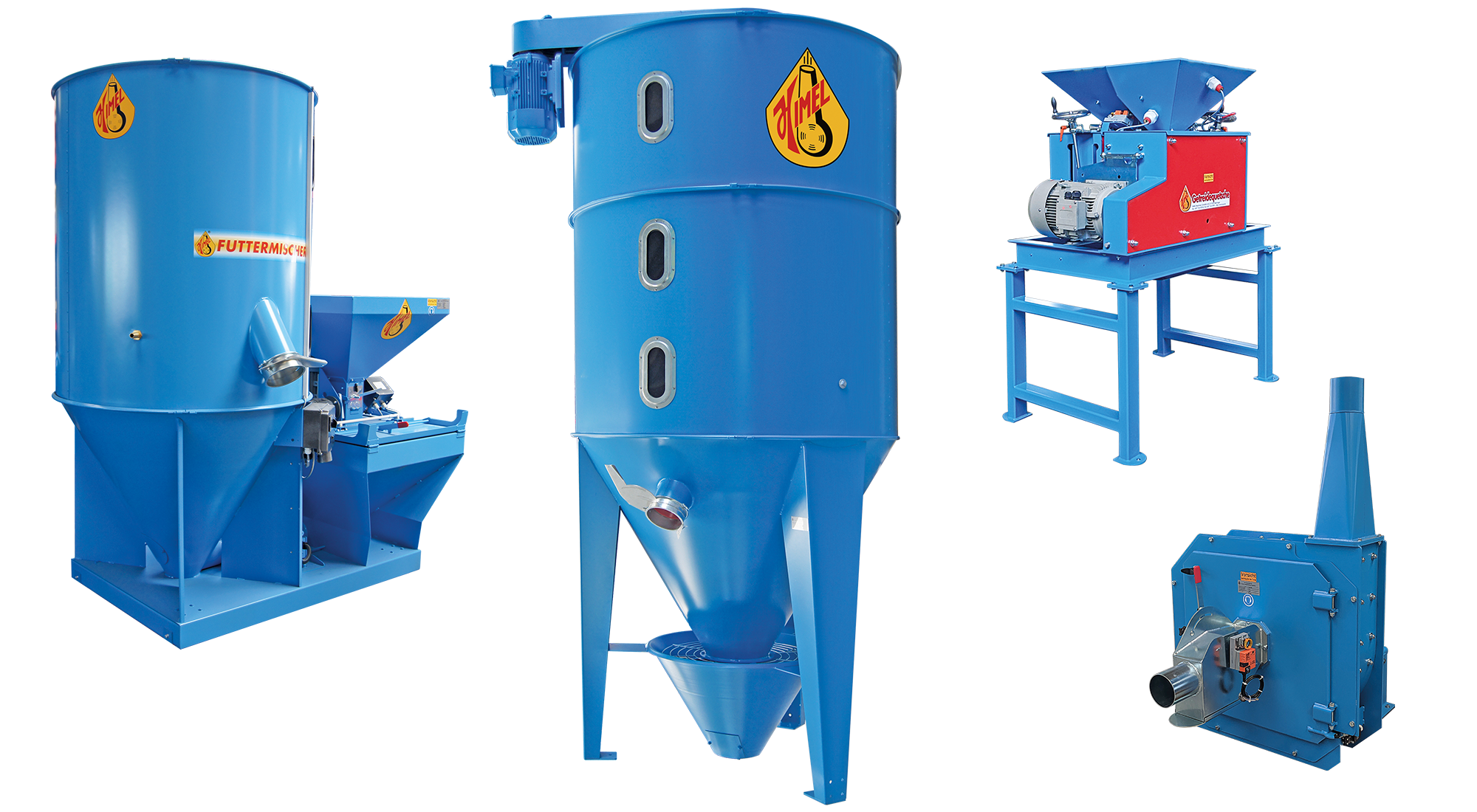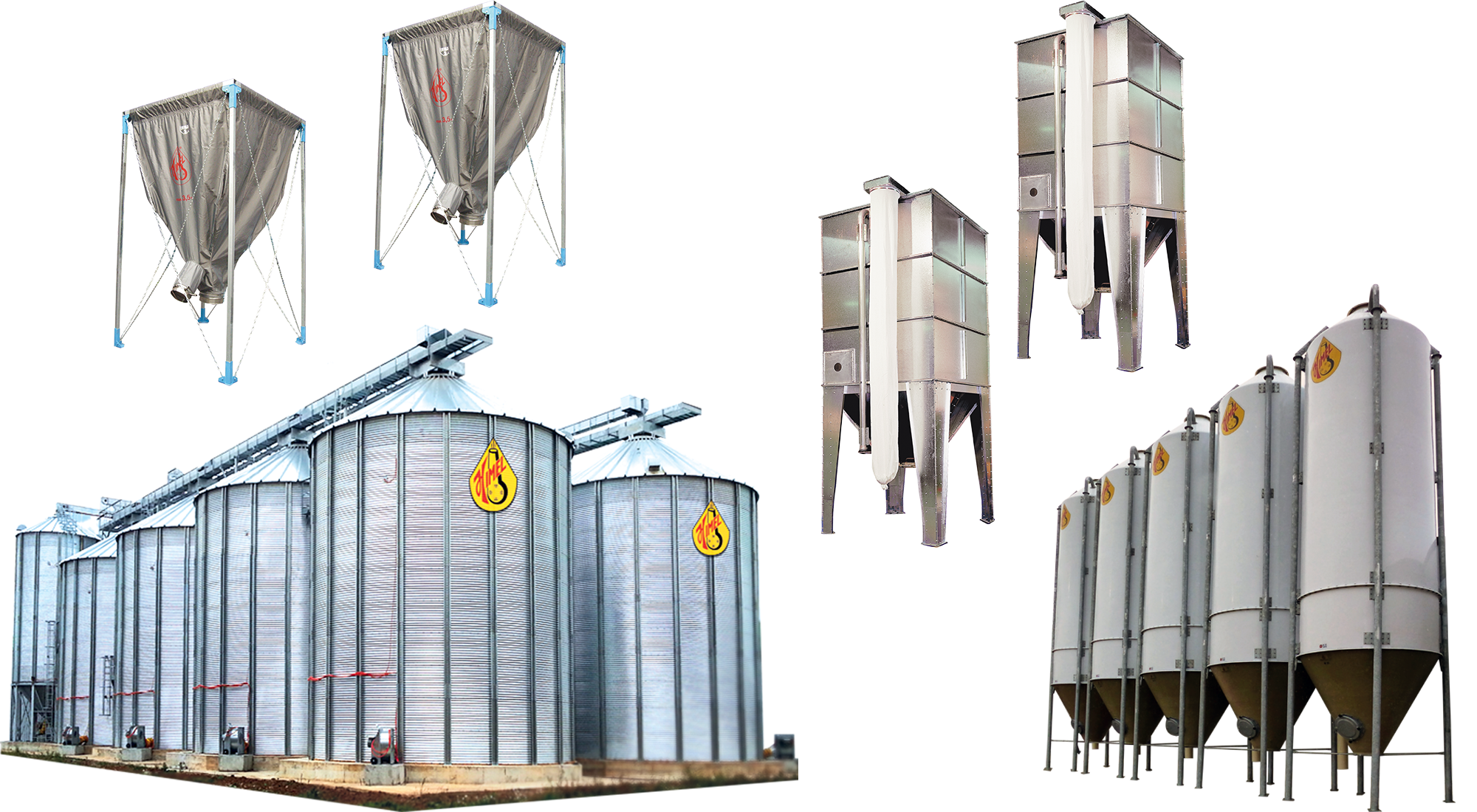Pelleting
The pelletising system is designed for processing dry stalk materials of all kinds, such as cereal straw, rapeseed straw, hay, miscanthus or similar products. The system works completely independently.
All necessary production steps from bale breaking to grinding, conditioning, pelletising and packaging are integrated.
All installations are carried out from a single source. This means that the system is immediately ready for operation after an intensive briefing.
Stationary pelletising
Thanks to the modular design of the pelletising system, our specialists can develop the optimum solution for your needs. With a strong and constant hourly output, stationary pelletising is the best choice for customers who value continuous operation with low maintenance costs.
Mobile pelletising (On request)
The mobile pelletising plant can process largely unused agricultural by-products into pellets. The entire system is integrated into a lorry trailer and pelletises directly on site. This saves you high transport costs for the bales.
Stationary pelleting
- For short transport distances between the field and plant
- High flexibility in design and installation
- Extensibility of the system
Basic module consisting of:
- buffer tank
- conditioning
- mixer
- press
- cooling trough
- filter unit
- cabinet
Possible options
- Straw pelleting, with Straw and grinding system
- Bulk-pelleting with bulk adoption and grinding system
- Wood pelleting plants, with wood chippers for thin and thick wood
More options
- pellet cooler
- Steam generating unit
Round or square bales can be used as starting material. The bales are picked up and broken up by the bale breaker. A frequency-controlled screw conveyor feeds the pelletiser, pellet press with flat dies. The pellets produced are screened, cooled and conveyed further. The easy-to-operate machine controls are located on the control cabinet;
Hourly output
The hourly output was calculated at up to 1.2 tonnes/h for the entire system. The output depends on the material type and quality, the die and the degree of grinding. The calculation is based on the processing of dry, homogeneous wheat straw (residual moisture < 14%). Fluctuating qualities of the raw material to be processed can significantly influence the hourly output. A die configuration suitable for the material is necessary for processing with optimum performance.
Energy consumption
The installed power is 180kW. Of this, approx. 130kWh is consumed during operation. Depending on the type of material and settings.
The aforementioned systems are designed for single-shift operation up to 250 days a year, in compliance with maintenance regulations. Continuous system operation by at least one operator is required.
Dimensions
The space requirement is 120m², with a height of 5.50m. The system can also be installed in a more compact form. Each system is assembled on site according to your requirements.
Bale shredder
Power connection: 22 kW
Hourly output: up to 1.5 t/h
(depending on material, residual moisture up to 12 %)
Material moisture: max. 14 %
Bale shredder for round and square bales with 2 scraper floors, a cutting roller and sieve.
Feed table for new bales with a length of 2.9 or 5.8 metres.
The discharge system with 2 augers feeds a constant quantity of material to the grinder.
The bonnet over the bale shredder minimises dust formation.
The gravity separator with 5 strong magnets provides additional protection for the grinder. All necessary brackets and pipe parts included.
Grinding
Power connection: approx. 50 kW
Hourly output: up to 2 t/h (depending on material, residual moisture up to 12 %)
Sieve: 20 mm / 8 mm
Material moisture: max. 14 %
One or two HIMEL STMi industrial straw mills with increased capacity and special sieve.
Powerful motor with 22kW or 30kW. Pipework for material separation.
Large-volume cyclone, ascending screw and rotary valve to the buffer tank.
Storage container
Power connection: approx. 3 kW
Volume: 8 m³
Tank for straw flour with a density of max. 50 kg/m³, with a volume of approx. 8 m³, with agitator to prevent bridging.
Fill level monitoring via rotary paddle indicator. Filter bonnet on the lid to compensate for the residual air pressure from the grinding process.
Connection to filter unit, manhole and nozzle.
Conditioning
Power connection: approx. 5 kW
Diameter: 250 mm
Frequency-controlled dosing screw, as conveying screw with inlet and outlet.
Rotary valve between the dosing and conditioning screw, for unpressurised dosing.
Conditioning screw with special winding. Including all connections for conditioning.
Manual water dosing unit for a water line set up by the operator included.
Screening and discharge
Power connection: 4.25kW
A special design vibrating screen conveyor with screen bottom, suction connections (or hopper) for dust return to the storage container.
Turbine V25, cyclone on the storage container, rotary valve under the cyclone, pipework.
Conveyor belt with a length of 4.5 m at a 45° angle after the vibrating chute.
All nozzles, supports and brackets included.
HIMEL switch cabinet PLC
Power connection: approx. 185 - 190 kW
Switch cabinet with group switching, PLC control and touch panel.
Power display for pellet press, frequency converter. All large consumers with soft start control.
Overload protection for the pellet press and grinder via limit value regulation.
Most functions can be visualised and individually set using the touch panel.
Mobile pelletizing
- Complete mobile system in the truck trailer
- Integrates all production steps
- Ideal for service providers
- Pellet raw materials locally
- Investment in overseas container
consisting of
- Base module and options correspond to the stationary pellet plant
- Current generator and external power supply available
- Mounting platform
- Enclosure
- Trailer can be supplied
Ihr Ansprechpartner
HIMEL - Verkauf
D - 72393 Melchingen
- Tel: +49 7126 / 9299-0
- FAX: +49 7126 9299-1
- E-Mail: verkauf@himel.de
Wir beraten Sie gerne
